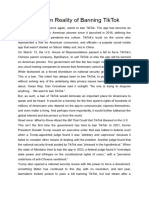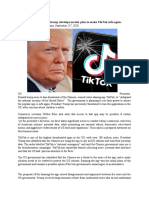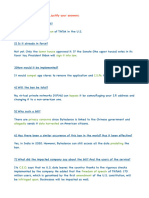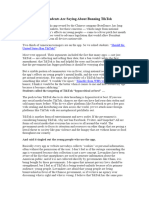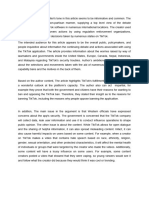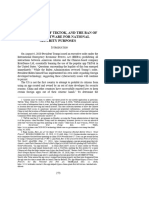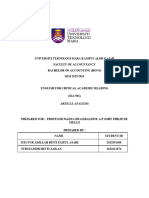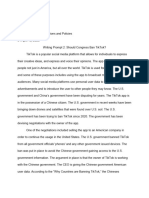0% found this document useful (0 votes)
6 views1 pageCK Hqeqh 0 F 2
In 2025, the U.S. is debating a potential nationwide ban on TikTok due to national security concerns related to its Chinese ownership and data practices. Opponents argue that the ban threatens free speech and digital freedom, as other platforms also collect user data. This controversy raises broader issues about online privacy, censorship, and the need for comprehensive data privacy laws in the U.S.
Uploaded by
gk5574754Copyright
© © All Rights Reserved
We take content rights seriously. If you suspect this is your content, claim it here.
Available Formats
Download as PDF, TXT or read online on Scribd
0% found this document useful (0 votes)
6 views1 pageCK Hqeqh 0 F 2
In 2025, the U.S. is debating a potential nationwide ban on TikTok due to national security concerns related to its Chinese ownership and data practices. Opponents argue that the ban threatens free speech and digital freedom, as other platforms also collect user data. This controversy raises broader issues about online privacy, censorship, and the need for comprehensive data privacy laws in the U.S.
Uploaded by
gk5574754Copyright
© © All Rights Reserved
We take content rights seriously. If you suspect this is your content, claim it here.
Available Formats
Download as PDF, TXT or read online on Scribd
/ 1






